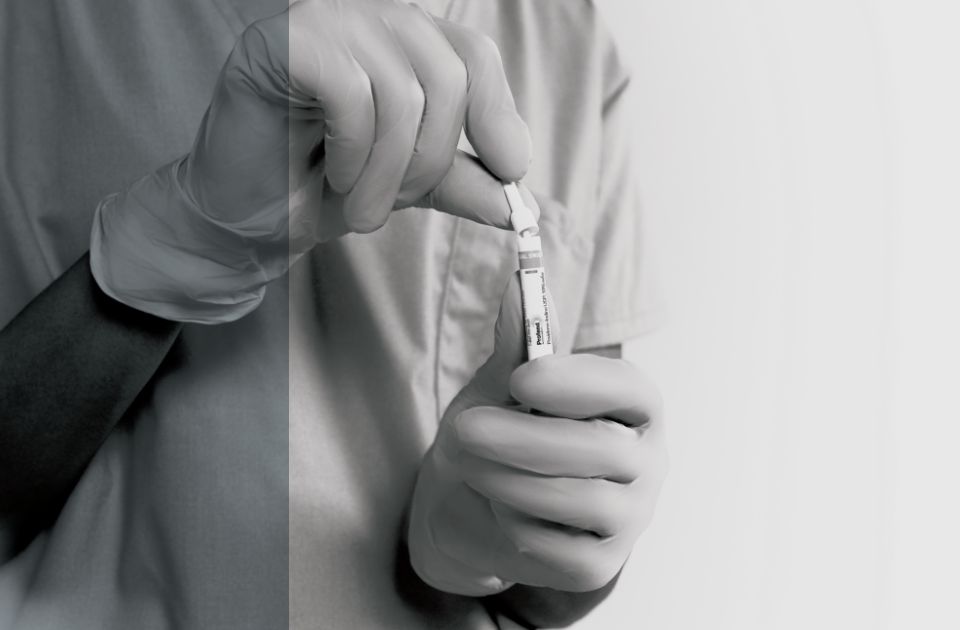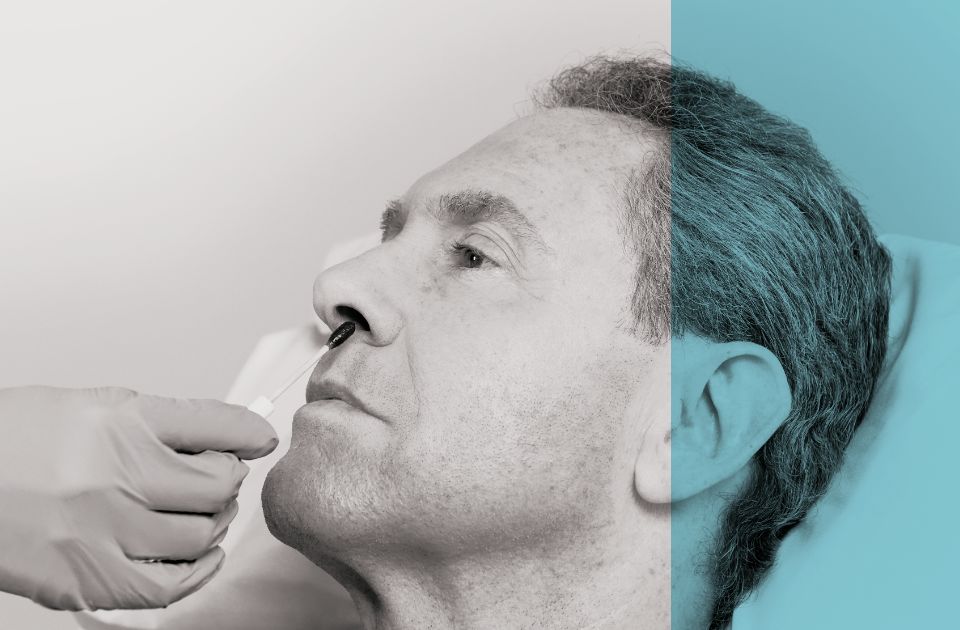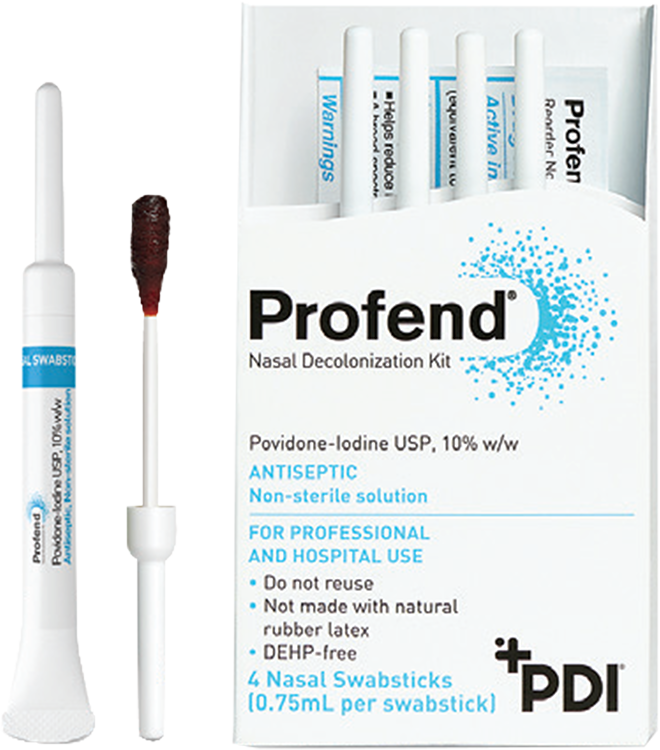Defend with Profend® nasal decolonization kit to protect surgical and ICU patients from infections.
60-second application with Profend nasal swabs kills 99.7% of Staphylococcus aureus at 10 minutes.1
Simply effective infection prevention.
See how Profend kits made a difference for infection prevention at
Hunterdon Medical Center in New Jersey.
Easy and efficient—just snap and swab.
- Profend nasal decolonization kits come in boxes of 4 swabs—use each swab for 15 seconds for a total of 60 seconds
- Unlike some PVP-Iodine products, mess-free Profend swabs are pre-saturated—just snap open and use
- More than 90% of healthcare providers surveyed prefer Profend kits over other PVP-Iodine products because they can be applied up to 2.5x faster3

Designed for comfort and compliance.
- Profend nasal swabs have a slim, compact design for patient comfort
- 96.6% of patients surveyed are comfortable with nasal application of PVP-Iodine4
- Clinician-administered for 100% compliance

Reduce risk of healthcare-associated infections (HAIs).

Find out more about Profend with these helpful resources.
References
1. PDI in vivo Study 0113-CTEVO. 2. Centers for Disease Control and Prevention. Strategies to Prevent Hospital-onset Staphylococcus aureus Bloodstream Infections in Acute Care Facilities. https://www.cdc.gov/hai/prevent/staph-prevention-strategies.html. Published December 2019. Accessed December 10, 2020. 3. PDI user acceptance study. 4. Maslow J, Hutzler L, Cuff G, Rosenberg A, Phillips M, Bosco J. Patient experience with mupirocin or povidone-iodine nasal decolonization. Orthopedics. 2014;37(6):e576–e581. 5. Nelson R, Samore M, Smith K, et al. Cost-effectiveness of adding decolonization to a surveillance strategy of screening and isolation for methicillin-resistant Staphylococcus aureus carriers. Clin Microbiol Infect. 2010;16(12):1740–1746.
*Surgical site infections. †Central line-associated bloodstream infections.
